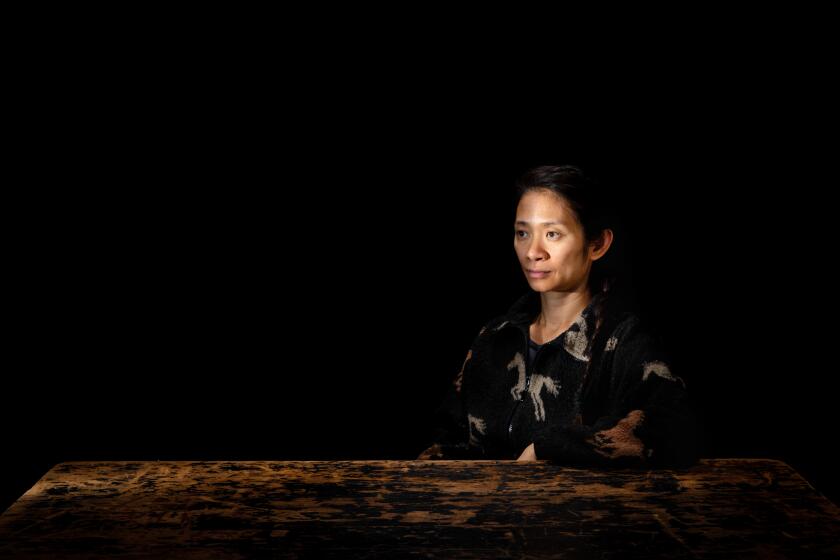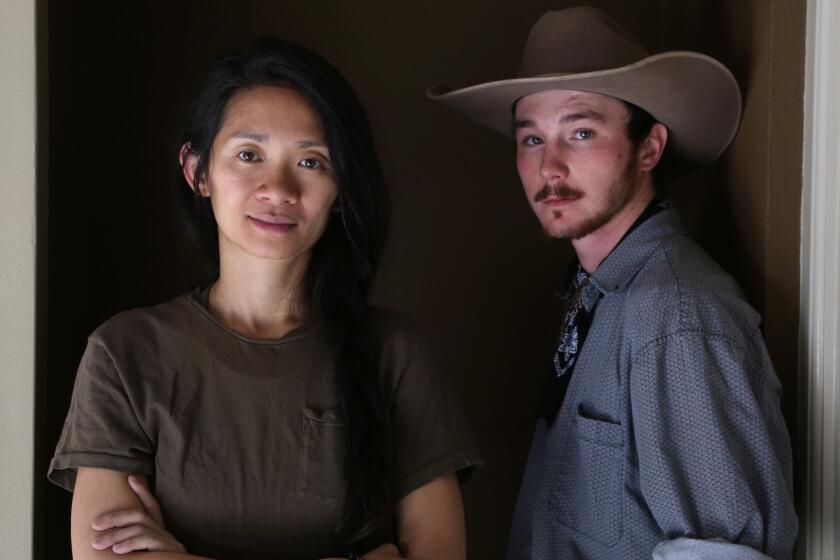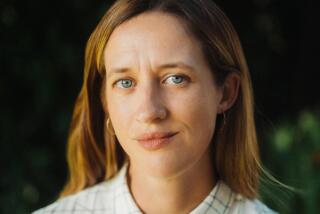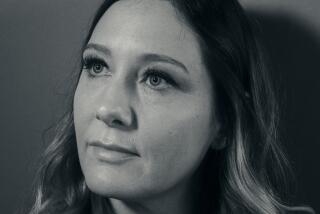Open skies tinged with the intense hues of twilight hang above expansive American landscapes in the films of Chloé Zhao.
On the ground, in vast pastures or endless roads untraveled, her humanistic gaze points to the keepers of simpler lifestyles, people embracing worldviews detached from the preoccupations of the urban mainstream. She is a beholder of the unseen.
Currently up for four Academy Awards for ‚ÄúNomadland,‚ÄĚ the Chinese-born writer, director, editor and producer has perfected an artisanal method to mold emotional truth into plainspoken yet soul-stirring fiction. Her curiosity about others is the not-so-secret golden touch.
There‚Äôs no traditional casting process involved, especially not for her first two efforts ‚ÄĒ 2015‚Äôs ‚ÄúSongs My Brothers Taught Me‚ÄĚ and 2017‚Äôs ‚ÄúThe Rider‚ÄĚ ‚ÄĒ whose stories originated from individuals in their inimitable life orbits.
Anchored on empathic understanding, Zhao cultivates relationships. The filmmaker, as she gets to know them, elicits the essence of her subjects, who later become first-time actors, and guides their lived experiences into a dramatic narrative.
The outcome is scripted but the raw material is fact. There’s a personal rediscovery for the men and women onscreen as they interpret themselves in Zhao’s fabricated versions of their realities.
A self-proclaimed atheist, Zhao also commands a sense of nonreligious spirituality throughout her work. Such poignant lyricism, however, isn’t only mined from the everyday tragedies and triumphs of the real people she immortalizes. In their personal interplay with the striking natural settings that envelop them, she uncovers a sacred union with the land.
The award-winning road movie from the writer-director Chloé Zhao is a gorgeous, lyrical weave of documentary and fiction.
Shots of a lone figure dwarfed in the immensity of an untainted domain fill Zhao’s movies. These contemplative instances, courtesy of her longtime cinematographer, Joshua James Richards, visually denote mankind’s insignificance in the face of nature’s grandeur.
Far from dehumanizing, that realization lets the characters bask in a force that escapes full comprehension ‚ÄĒ extensions of the terrain on which they stand. They are as much a part of it as every sturdy moutain rock or fragile blade of grass.
With ‚ÄúNomadland,‚ÄĚ Zhao has adapted these true-to-life storytelling techniques into a somewhat preconceived canvas, starting with reporter Jessica Bruder‚Äôs book of the same name and the bigger platform of prestige specialty film label Searchlight. Still, her core artistic interests endure.
A nomad herself, both through her geographical transition from her homeland to the U.S. and in how she transits social ecosystems, Zhao seems fascinated with the concept of home, whether it’s movable or fixed, chosen or assigned.
JASHAUN ST. JOHN
‚ÄėSongs My Brothers Taught Me‚Äô
For her feature debut, ‚ÄúSongs My Brothers Taught Me,‚ÄĚ Zhao found a prime rural locale to explore in the Pine Ridge Oglala Lakota Reservation in South Dakota. One of the film‚Äôs young stars, Jashaun St. John, met Zhao in 2013, as the director took photos of people in the area. Zhao asked the then 11-year-old to audition for the project she was gestating. Impressed, she rewrote the script to make St. John the protagonist.
‚ÄúSongs‚ÄĚ centers two siblings navigating societal ills affecting Native American communities, namely alcoholism. The eldest, Johnny Winters (John Reddy), is a teenage bootlegger with plans to move to Los Angeles. He‚Äôs just bought a truck, a ticket to freedom.
In a testament to Zhao’s thoughtful casting and the chemistry forged during production between the leads, St. John recalls festival audiences truly believing she and Reddy were brother and sister.
The Jashaun she played in front of the camera is hurt by Johnny’s desperation to leave. Though she doesn’t want to be left behind, she also witnesses how staying has played out for other men in the community, including her father.
Zhao poses an ambivalent sentiment about belonging and moving away from the tribe that raised you. St. John believes Zhao’s outsider vision put her own feelings on the Badlands into perspective.
‚ÄúTo me the movie is about the connections to home and especially my home in the reservation,‚ÄĚ St. John said by phone from South Dakota.
‚ÄúChlo√© really shows a lot of the landscapes and it actually made me appreciate where I was, especially because you see where you live at every day and you never really notice how beautiful it really is,‚ÄĚ she added.
The Oscar-nominated director reflects on the need to be vulnerable and put yourself out there.
All the signature elements of Zhao‚Äôs cinematic grammar are fully fleshed out here: the evocative use of the ‚Äúmagic hour‚ÄĚ as backdrop, a reverence for boundless spaces and metaphors linking the human condition to wild horses.
Just as she inserted Oscar winner Frances McDormand into the world of the van dwellers in ‚ÄúNomadland,‚ÄĚ Zhao placed acclaimed Native American actress Irene Bedard (‚ÄúPocahontas‚ÄĚ) in ‚ÄúSongs,‚ÄĚ as a mother struggling to be present in her children‚Äôs lives.
Bedard also appears in Terrence Malick‚Äôs ‚ÄúThe New World,‚ÄĚ a movie Zhao has praised precisely for its depiction of Indigenous people engaging with a higher power found in the natural world. St. John, who‚Äôd always admired Bedard, rejoiced in acting opposite her heroine.
After ‚ÄúSongs‚ÄĚ premiered at the Sundance Film Festival, St. John found representation and went on to appear in 2019‚Äôs ‚ÄúThe Short History of the Long Road.‚ÄĚ The young natural-born actress has moved about two hours away from the reservation, but part of her family still resides there.
‚ÄúI‚Äôm super grateful for her and how close we connected throughout the film and how strong our bond still is to this day. Chlo√© is very special and she sees the good in a lot of people, especially me,‚ÄĚ said St. John.
Reaffirming that vote of confidence, Zhao cast St. John again in her upcoming Marvel superhero saga ‚ÄúEternals,‚ÄĚ scheduled to be released on Nov. 5.
BRADY JANDREAU
‚ÄėThe Rider‚Äô
With the dust barely settled behind the release of ‚ÄúSongs,‚ÄĚ Zhao returned to the same reservation to make ‚ÄúThe Rider,‚ÄĚ a venture once again shaped by her collaborator.
Having just dropped out of college, horse trainer and former bronc rider Brady Jandreau met Zhao while working at a local ranch. The director wanted her follow-up to showcase the cowboys’ way of life.
‚ÄúI taught her about training horses. She rode horses with us and gathered cattle. I showed some of the different aspects of ranching. She got to know me through all that,‚ÄĚ Jandreau recalled. Zhao was drawn to his ability to work with difficult horses other people weren‚Äôt capable of dealing with.
‚ÄúI guess she figured I wasn‚Äôt too ugly and started talking to me about possibly playing the lead role,‚ÄĚ Jandreau said. ‚ÄúI had never thought about doing anything like that in my life. But she seemed to believe in me. I thought, ‚ÄėShe wasn‚Äôt scared of working with me, so why should I be scared of her camera?‚Äô‚ÄĚ
On one occasion, as Jandreau told Zhao he would love to live in the wilderness, she asked him to demonstrate his knowledge of the land. He picked up a pink flower and cleaned out the root using a knife until he got to the core.
‚ÄúI told Chloe, ‚ÄėChew on this.‚Äô And she chewed on it and said, ‚ÄėMy whole mouth is going numb. What‚Äôd you give me?‚Äô I said, ‚ÄėIt‚Äôs called bitterroot. It‚Äôs something that Native Americans used back in the day to numb their tooth when they got a toothache.‚Äô She was pretty impressed by that,‚ÄĚ he said.
Ultimately, what most distinctly inspired ‚ÄúThe Rider‚ÄĚ was a severe injury Jandreau suffered during a rodeo. A horse stepped on his skull. Mere weeks after the incident, in which he sustained neck and brain trauma, he got back on an old horse he had been riding since childhood. Not long after he also returned to training colts.
‚ÄúI just went back to breaking horses before my screws had even calcified around the plate in my head. That‚Äôs all I‚Äôve ever done,‚ÄĚ he said. His alter ego in ‚ÄúThe Rider‚ÄĚ carries himself with that same passion for the one thing that gives him purpose.
Born in Beijing in 1983, filmmaker Chloé Zhao wasn’t exposed to any American movies until the mid-1990s, when China began to open itself up to the West.
Through a Marriott Bonvoy Traveler campaign that pairs people with unique skills around the world, Jandreau recently had the opportunity to visit Argentina and Chile to spend time with the gauchos (South American cowboys). The visit confirmed his adoration for the animals that have always been by his side and his notion of safe haven.
‚ÄúHome is feeling like you belong. Without that, it doesn‚Äôt matter how long you‚Äôve lived at a place or how big of a house you live in. Home is a feeling, not a place. I couldn‚Äôt be at home if I didn‚Äôt have a horse to ride. When you‚Äôre a cowboy, your home is genuinely where your horse is,‚ÄĚ he said. ‚ÄúThe movie definitely captured the way that people are in touch with the land here in this part of the world.‚ÄĚ
Jandreau, now married and the father of a 3-year-old daughter, runs a horse breeding program called Jandreau Performance Horses. The pandemic permitting, he will next star in the war drama ‚ÄúOutside the Wire‚ÄĚ alongside Garrett Hedlund.
Beyond the materialization of previously unthinkable career possibilities, Jandreau believes ‚ÄúThe Rider‚ÄĚ provided him a platform for self-reflection. To him, Zhao‚Äôs pensive tales revolve around the chance for the characters to see themselves anew.
‚ÄúI would say ‚ÄėSongs,‚Äô ‚ÄėThe Rider‚Äô and ‚ÄėNomadland‚Äô all capture the feeling of being a part of something, whether it‚Äôs something solid that you can see or something that makes you feel comfortable. After my head injury, not being able to do what I did and be who I was, I didn‚Äôt even feel comfortable in my own skin,‚ÄĚ Jandreau said. ‚ÄúI feel like a lot of the scenes in ‚ÄėNomadland‚Äô and ‚ÄėSongs‚Äô also capture that same feeling and being able to overcome that and be comfortable again, just as best as you can be.‚ÄĚ
BOB WELLS
‚ÄėNomadland‚Äô
Just as Brady in ‚ÄĚThe Rider‚ÄĚ relies on his horse for nonjudgmental companionship and Johnny in ‚ÄúSongs‚ÄĚ sees his secondhand truck as his bridge to go West and into a new life, Fern (McDormand), the leading lady in ‚ÄúNomadland,‚ÄĚ is wholeheartedly invested in her customized van, a home on wheels.
For all three, their vehicles represent an escape from that which haunts them. These carriages to liberty physically remove them from the complications of existence, even if eventually they must grapple with inescapable pain.
In Fern‚Äôs case it‚Äôs the loss of her husband and the entire town of Empire, Nev., lost to economic collapse, where they had built their nest. Treasuring all that‚Äôs left ‚ÄĒ her memories mostly ‚ÄĒ she strives for reinvention and pushes to find a new identity on the road.
A van dweller for 19 years, since a divorce brought on financial instability, Bob Wells embodies the generosity of the lifestyle. He has a YouTube channel, where he teaches neophytes the basics of modern nomadic living, and was also part of Bruder’s original text.
Before agreeing to be part of Zhao’s film, Wells researched the director’s earlier titles. He found their honesty and the grittiness irreproachable.
To Wells, being a nomad is inherently spiritual, and he sees the nomad community as a pack of kindred souls who are never alone despite not often being physically together.
How three nomads ‚ÄĒ Linda May, Charlene Swankie and Bob Wells ‚ÄĒ brought authenticity and heart to Oscar contender ‚ÄėNomadland.‚Äô And an update on Swankie‚Äôs health.
Long spans of time pass before he sees some of his friends, but he knows their paths will inevitably cross again. ‚ÄúI call those bungee cord relationships. There is an invisible cord that transcends time and space and connects us,‚ÄĚ he said, calling from inside his van somewhere in the U.S.
Wells has known both Swankie and Linda May, the other two most prominent nonprofessional actors in ‚ÄúNomadland,‚ÄĚ for several years.
Today, Wells thinks fondly of working opposite the Oscar-winning McDormand (nominated again this year for ‚ÄúNomadland‚ÄĚ). The actress, committed to her part, reminisced about her character‚Äôs late partner and the ghost town she had left behind as if those anecdotes were real.
‚ÄúFrances is a magician,‚ÄĚ he said. ‚ÄúI didn‚Äôt have to search for the emotions. She‚Äôd already created them. They were there on the surface. It was astonishing watching an actor of that caliber at work.‚ÄĚ
Due to the impact of the COVID-19 crisis, Wells has seen an uptick in the number of people inquiring about van living as a housing option. His hope is that those considering it can see it as more than a last resort.
‚ÄúIt isn‚Äôt just survival. It can be a higher quality of life than anything they‚Äôve ever known, a different standard of quality of life, but actually higher quality of life,‚ÄĚ he explained. ‚ÄúVery few people who live in civilized countries have any genuine control over their lives. ‚ÄĚ
Instead of working a standard 40-hour workweek to cover rent and essentials, many nomads work seasonal jobs for half the year. The other six months they spend at leisure. Still, Wells warns that to triumph over the system, one has to accept a different standard of living.
‚ÄúOn one side is freedom and on the other side is comfort. If you‚Äôre willing to give up the comfort, you can buy your freedom. You‚Äôve got to give up a lot of what we think of as required comforts,‚ÄĚ he said. For him, the divine fulfillment of connecting to nature is worth all the costs.
‚ÄúI personally make it a point to be out for every sunset. I search out the most beautiful places I can find because I live on wheels and I think nature is healing and powerful,‚ÄĚ Wells said. ‚ÄúI can‚Äôt describe it. In my mind that is the ultimate definition of spirituality ‚ÄĒ the unknown, the unexplainable experienced.‚ÄĚ
CAT CLIFFORD
‚ÄėSongs My Brothers Taught Me,‚Äô ‚ÄėThe Rider‚Äô and ‚ÄėNomadland‚Äô
Similarly, musician and rodeo rider Cat Clifford, who’s been a part of Zhao’s tapestry across all entries in her film triptych, channels his recollections on the mysteries of living into his compositions.
Born and raised in the Badlands, south of the Black Hills on the same Pine Ridge Reservation where Lakota culture is prevalent, Clifford began singing at a very young age, literally because of songs his uncles taught him, including Lakota prayer songs.
The inspiration to perform wasn’t only found through music. Clifford had two other uncles who were rodeo athletes and movie stuntmen.
Clifford first got on Zhao‚Äôs radar after she visited his younger brother‚Äôs drama club in search of possible talent. One night after an outdoors ‚Äúghost hunt,‚ÄĚ he gave her a CD of his first demo of original songs.
The following summer she messaged him about a small part in ‚ÄúSongs My Brothers Taught Me.‚ÄĚ Clifford appears as a protective brother to Jonny‚Äôs girlfriend and is seen singing during a funeral scene.
He has a larger role in ‚ÄúThe Rider,‚ÄĚ as one of Brady‚Äôs closest friends, and in ‚ÄúNomadland‚ÄĚ he‚Äôs briefly seen performing with his guitar. Clifford‚Äôs original track ‚ÄúDrifting Away I Go‚ÄĚ plays over the ‚ÄúNomadland‚ÄĚ credits and is part of the official soundtrack.
‚ÄúI composed ‚ÄėDrifting Away I Go‚Äô not long after ‚ÄėThe Rider.‚Äô I had written the lyrics while traveling down the highway on the way to the next rodeo somewhere,‚ÄĚ Clifford said via email while on the road.
‚ÄúThe song is really a culmination of the feelings I‚Äôve felt while traveling alone, where if lonesomeness happened to linger it wasn‚Äôt accompanied with sadness but understanding.‚ÄĚ
As ‚ÄėNomadland‚Äô joins the list of 2021 Oscar nominees today, here‚Äôs a closer look at the making of the movie and the people involved.
He had previously composed a tune specifically for Zhao‚Äôs ‚ÄúSongs‚ÄĚ titled ‚ÄúHigh Lonesome Ride Home.‚ÄĚ Although ‚ÄúDrifting‚ÄĚ existed before he was asked to participate in ‚ÄúNomadland,‚ÄĚZhao thought it was appropriate to conclude Fern‚Äôs journey.
In Clifford’s eyes, the protagonists of Zhao’s stories all share the difficulty of letting go: of the past, of resentment, or of the ideal image they had of themselves. Nature provides grounding for that innermost expedition.
And while the Badlands will always be home for Clifford, on his rodeo travels he’s made a home of many places, just like Fern..
‚ÄúI have always liked to see new places and to meet the people. I am descended from nomads, the Lakota and Cheyenne peoples who followed the bison across the plains, to the French fur traders that along the way befriended those Indigenous peoples. Come to think of it, we are all descendants from nomads in some way or other, at least here in the good ol‚Äô USA.‚ÄĚ
More to Read
Only good movies
Get the Indie Focus newsletter, Mark Olsen's weekly guide to the world of cinema.
You may occasionally receive promotional content from the Los Angeles Times.












